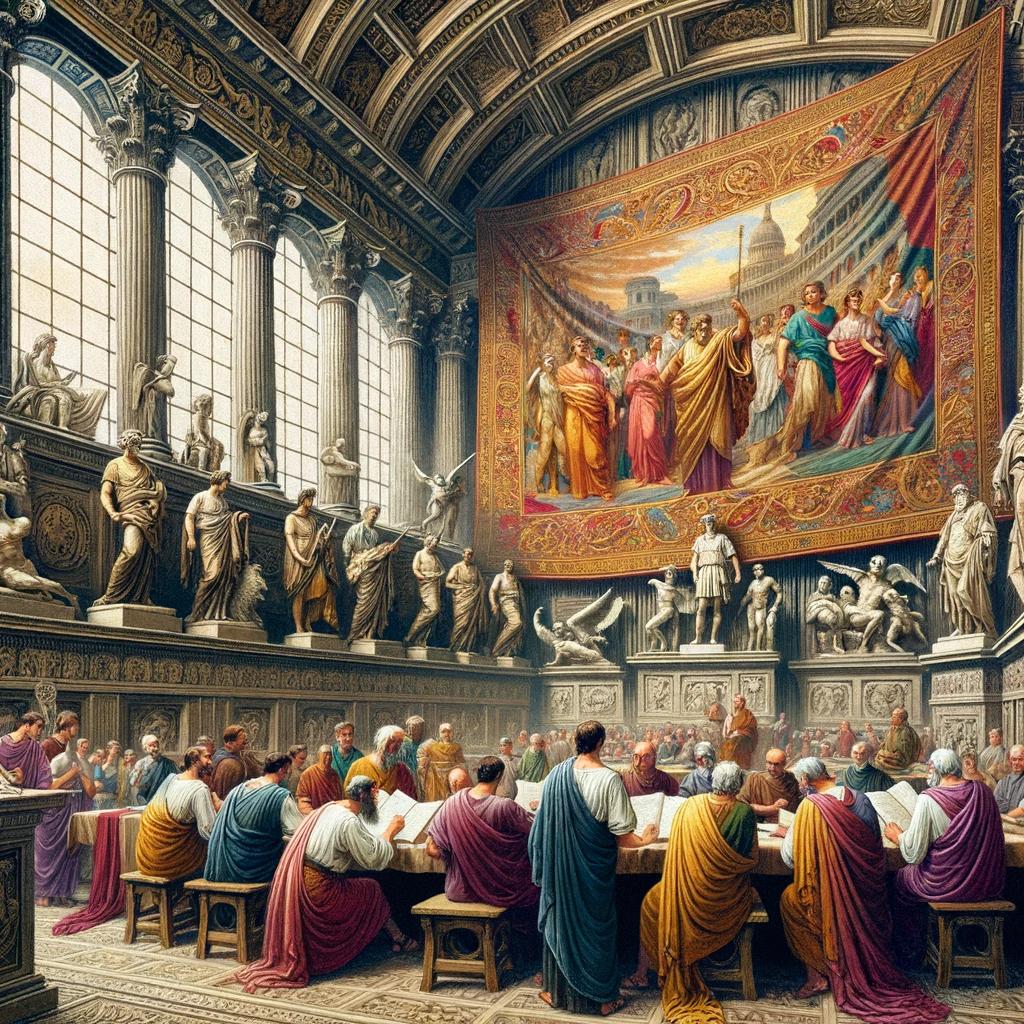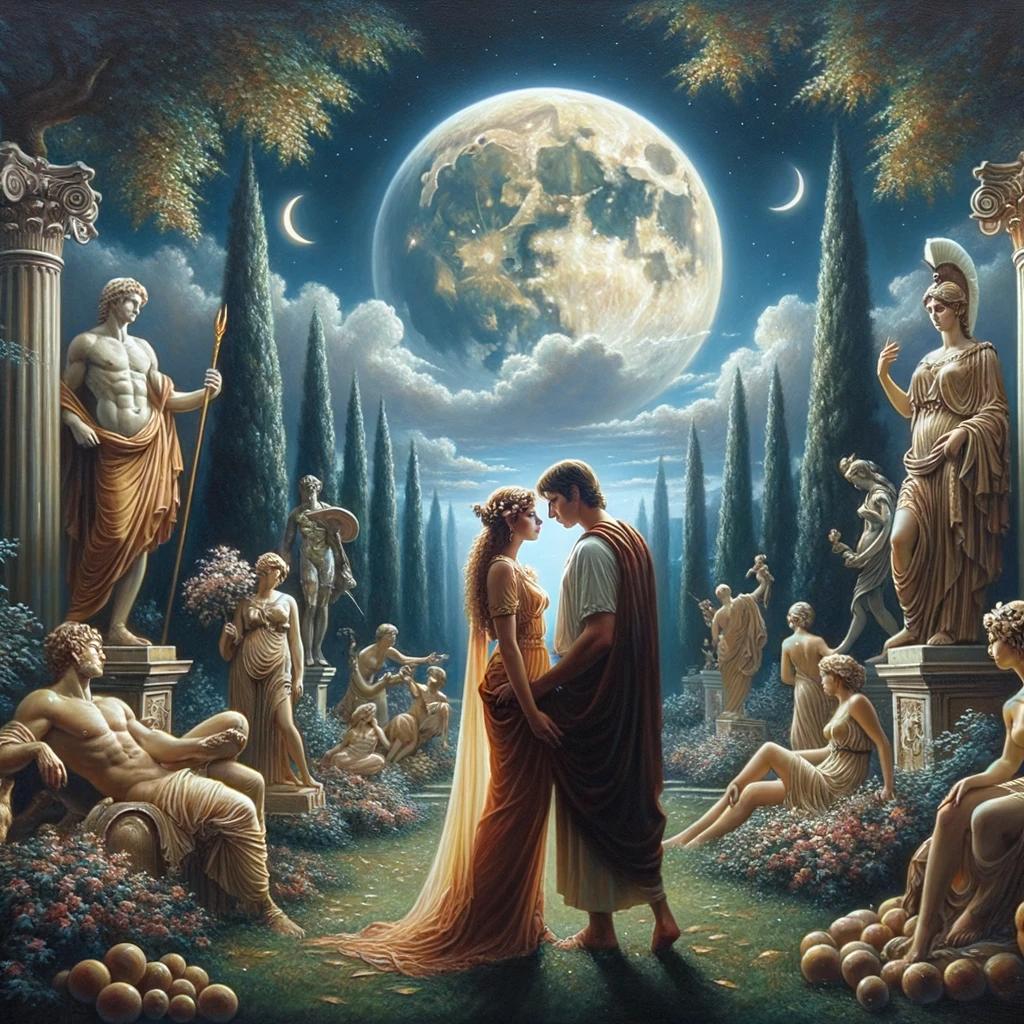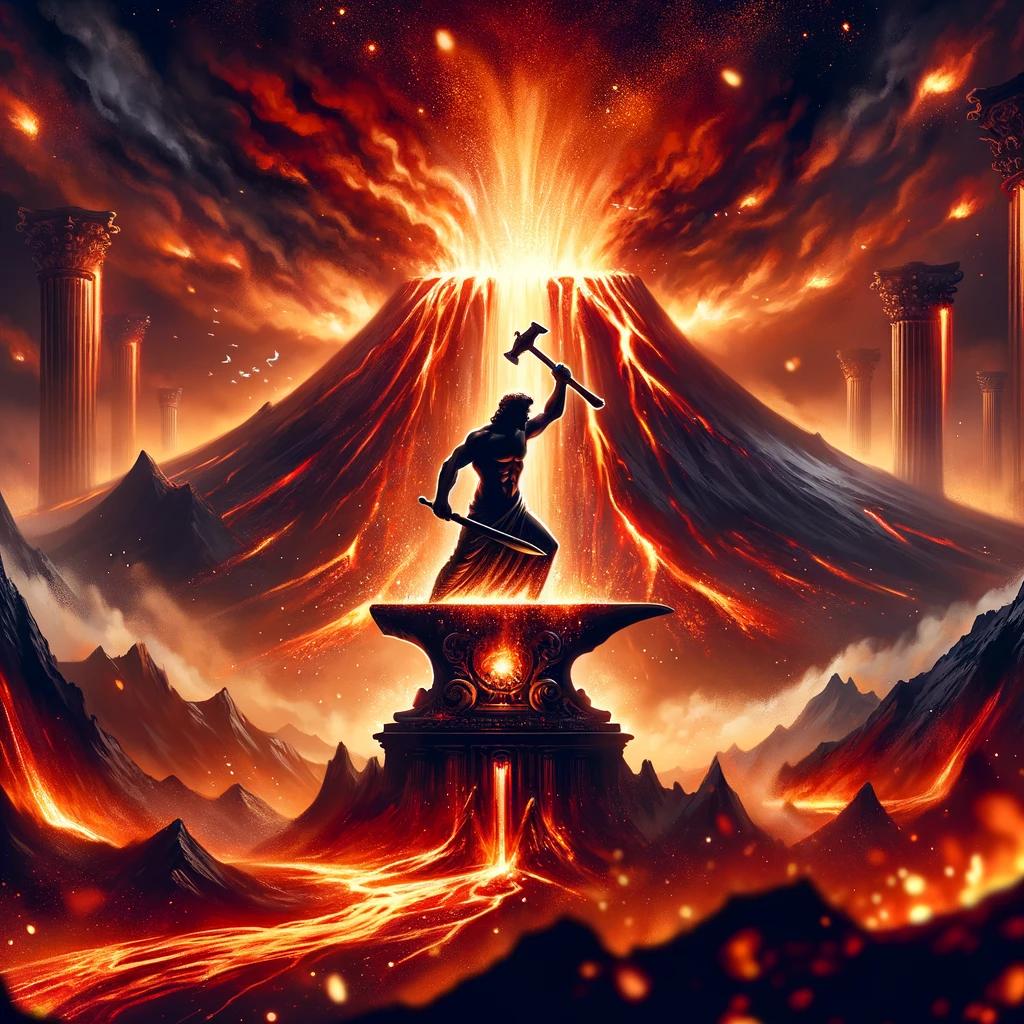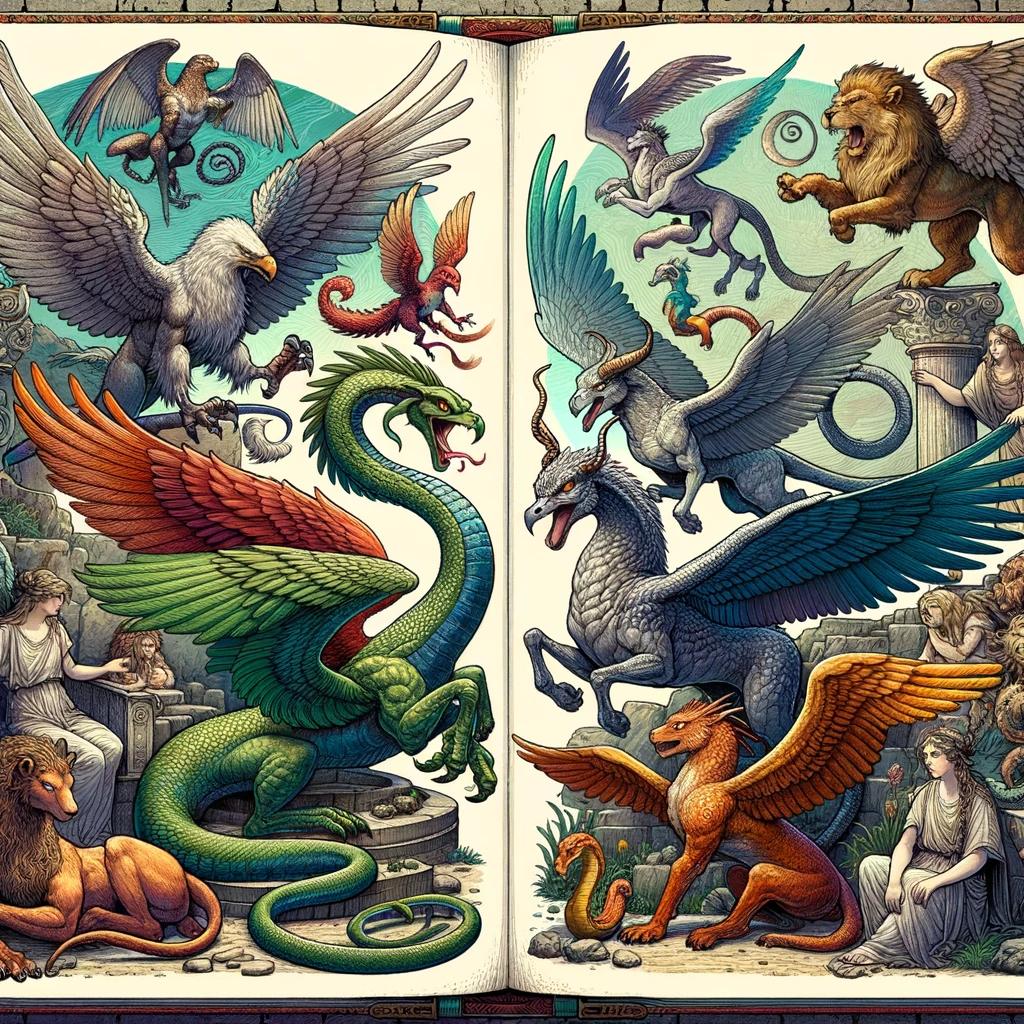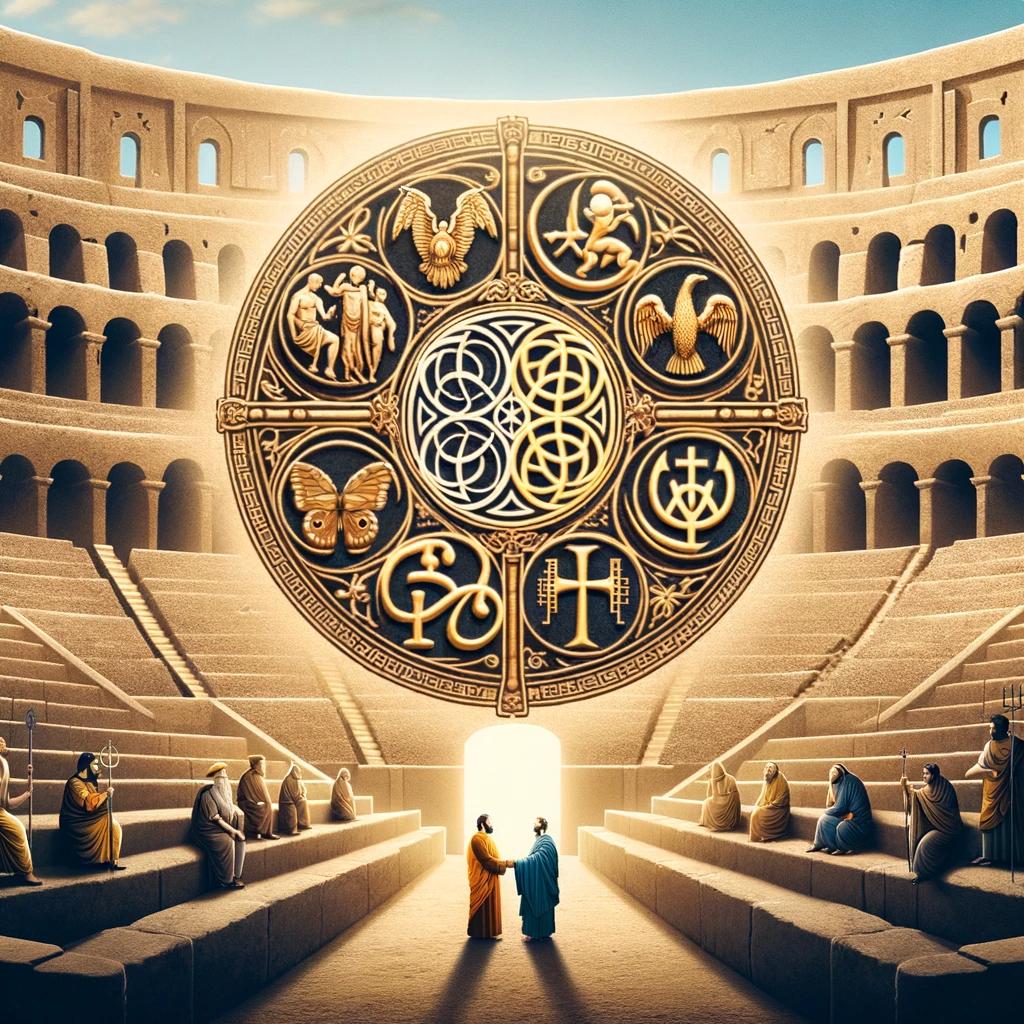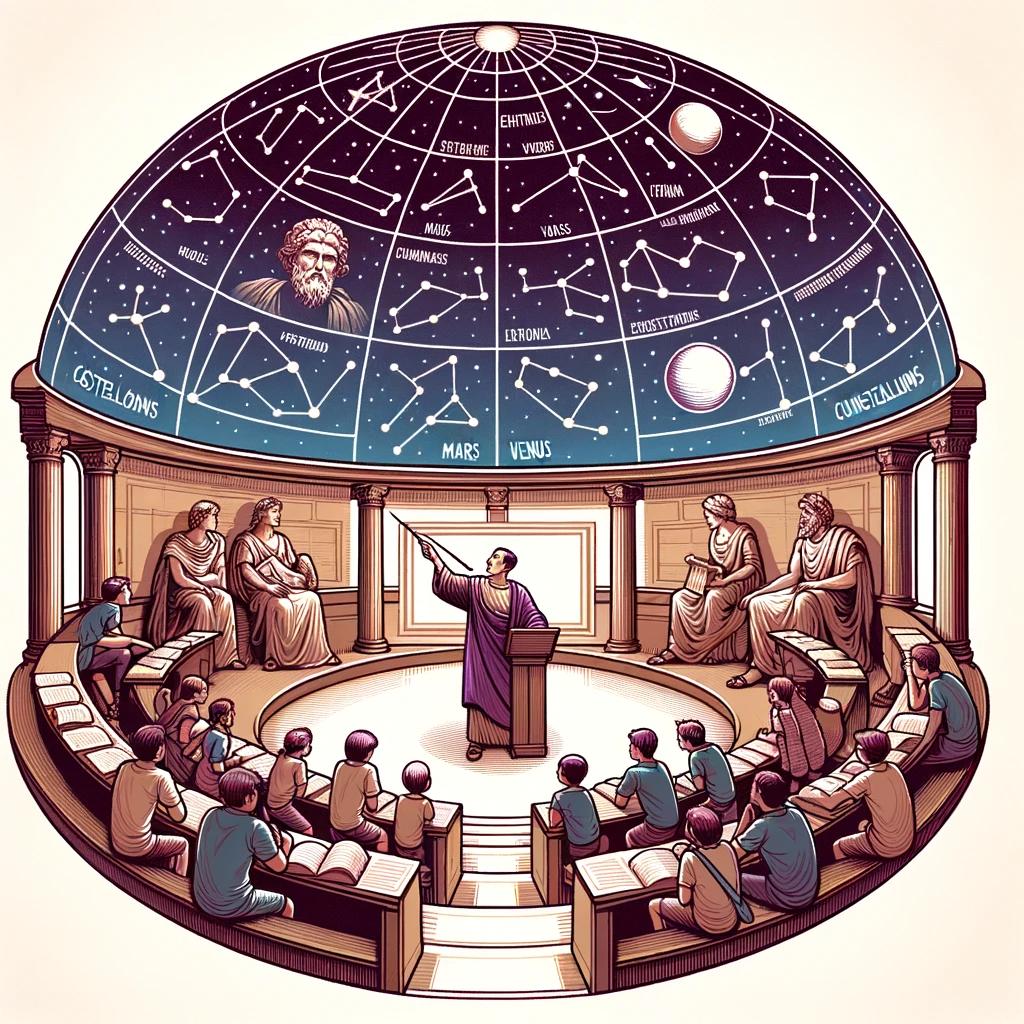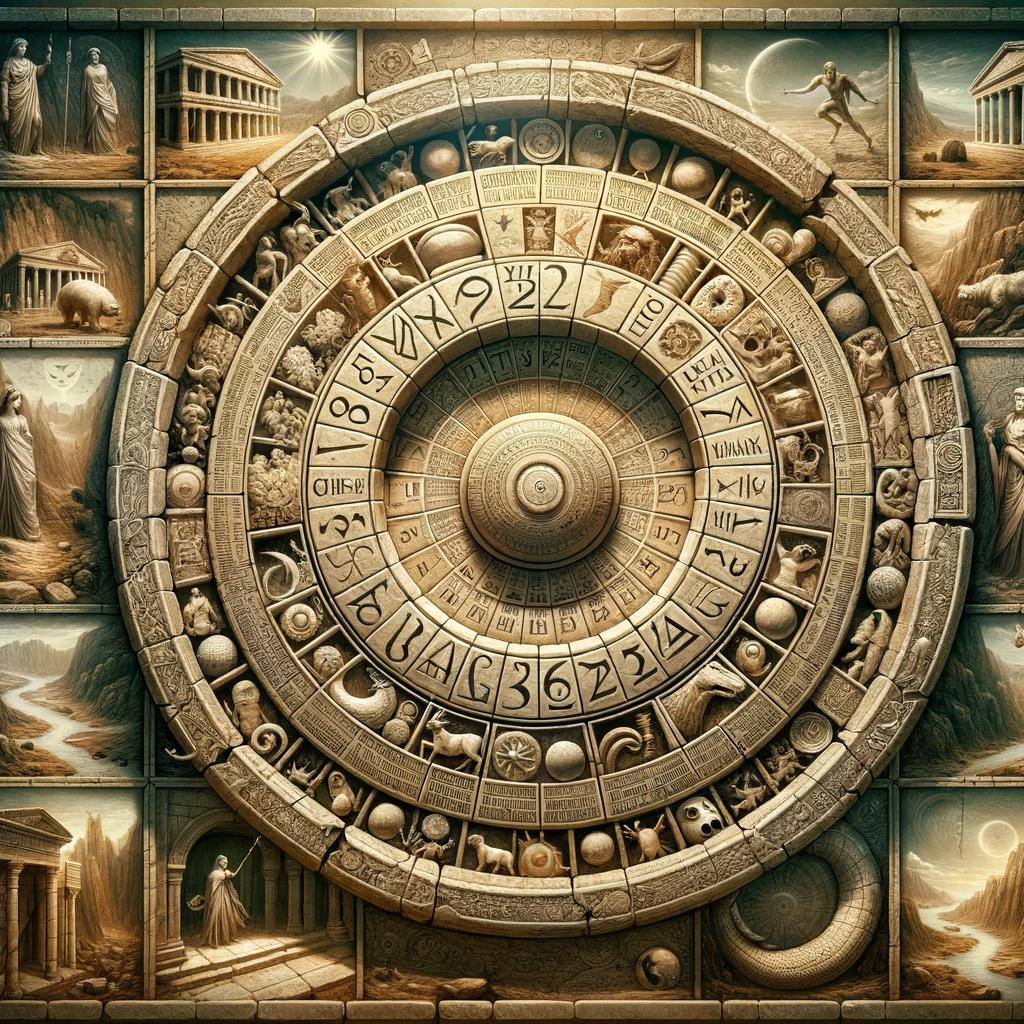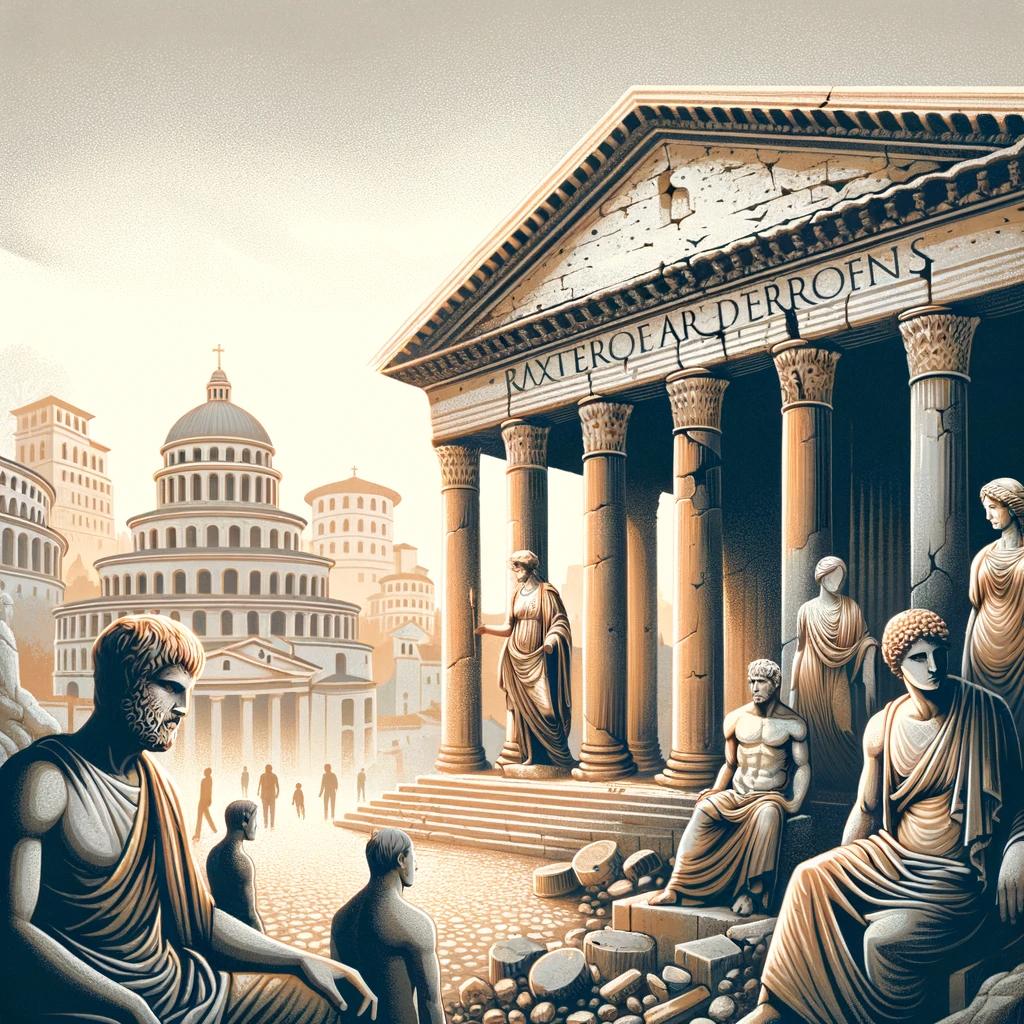Explore the Enchanting World of Roman Myths and Legends
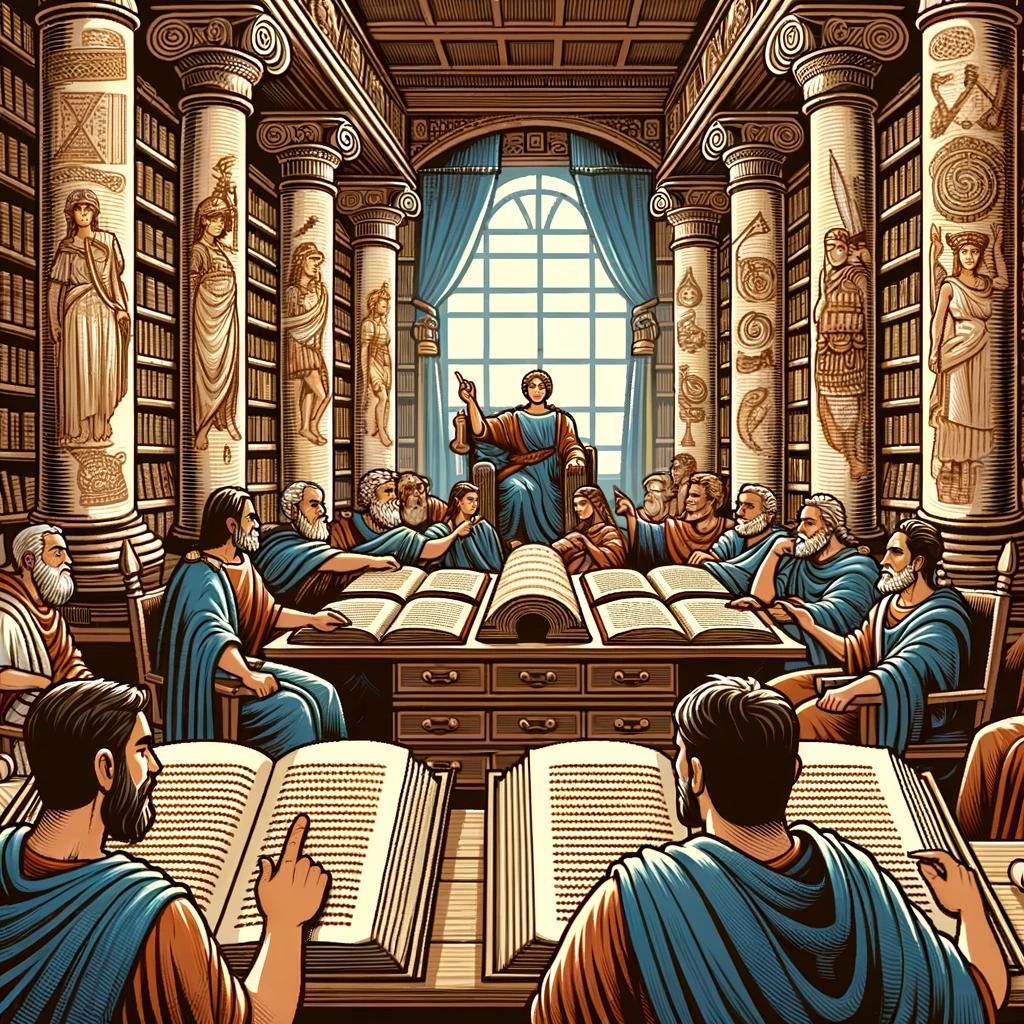
Roman Myths and Legends are captivating tales that have been passed down through generations. They offer insight into the origins and beliefs of ancient Roman society. From the influences of Greek and Etruscan mythology, to the diverse pantheon of Roman gods and goddesses, these legends have left a lasting impact on literature, art, and religious practices.
Dive into the enchanting world of Roman mythology to explore creation myths, mythological themes in ancient literature, and the role of myths in Roman society. Discover the influence of mythology on Roman history and its significance in shaping the culture of ancient Rome.
The Origins of Roman Mythology
The rich tapestry of Roman mythology is woven with influences from Greek mythology and the ancient Etruscan civilization. Understanding the origins of Roman mythology allows us to delve into the intricate web of stories that shaped the beliefs of the ancient Romans.
The Influences of Greek Mythology on Roman Myths
Greek mythology played a significant role in shaping Roman myths and legends. As the Roman Empire expanded its influence across Greece, it absorbed and assimilated many elements of Greek culture, including their myths.
This fusion resulted in a fascinating interplay between the gods and goddesses of both civilizations, leading to similarities and adaptations in their divine tales.
Etruscan Influence on Roman Mythology
Prior to their encounter with the Greeks, the Romans had their own indigenous civilization known as the Etruscans. The Etruscans, with their unique pantheon of gods and distinctive religious practices, greatly influenced Roman mythology.
The Roman gods and goddesses often took on Etruscan attributes and characteristics, creating a complex tapestry of deities and mythical tales that reflected the amalgamation of these cultures.
The origins of Roman mythology are a fascinating exploration of the cross-cultural interactions between ancient civilizations.
By studying the influences of Greek mythology and the Etruscan civilization, we gain valuable insights into the origins and development of Roman myths and legends.
Roman Gods and Goddesses
Introduction to Roman Deities
Roman mythology is rich with a plethora of gods and goddesses who played significant roles in the lives of ancient Romans. These deities represented various aspects of nature, society, and human life.
Worshiping these gods and goddesses was an integral part of Roman religious practices and ceremonies.
Major Roman Gods and Goddesses
The Roman pantheon comprised numerous powerful deities, each with their distinct domains and attributes. Some of the major gods and goddesses venerated by the Romans included Jupiter, the king of gods and the god of thunder and the sky; Juno, the queen of gods and the goddess of marriage and childbirth; Mars, the god of war and agriculture; Venus, the goddess of love and beauty; and Neptune, the god of the sea.
These deities held immense influence over various aspects of Roman life and were worshiped through rituals and festivals.
Roman Goddess Names and Meanings
Roman mythology also boasts a rich collection of goddesses, each with their unique significance and symbolism. Names such as Diana, the goddess of the hunt and the moon; Minerva, the goddess of wisdom and strategic warfare; Vesta, the goddess of the hearth and home; and Ceres, the goddess of agriculture and fertility, hold deep meaning in Roman culture.
Understanding the names and meanings of these goddesses provides a glimpse into the beliefs and values held by the ancient Romans.
Roman Mythology Names for Males
In addition to goddesses, Roman mythology has a wide range of male deities, each associated with different aspects of life and nature. Gods like Mercury, the messenger of the gods and the god of commerce; Pluto, the ruler of the underworld; Apollo, the god of music, poetry, and healing; and Bacchus, the god of wine and revelry, were revered by the Romans.
These names carry significance and reflect the roles these deities played in Roman mythology and society.
The Creation Myths and Legends
Embark on a journey through the mesmerizing creation myths and legends of ancient Rome. These stories offer captivating insights into the origins of Rome and the mystical beliefs that shaped its foundation.
Explore the enchanting tale of Romulus and Remus, the mythological founders of Rome, and discover the divine origins associated with its birth.
Romulus and Remus: The Myth of the Founding of Rome
The myth of Romulus and Remus is central to the birth of Rome.
According to legend, the twin brothers were abandoned in the Tiber River and were nourished by a she-wolf until they were discovered and raised by a shepherd. As they grew older, a dispute arose between them, leading to the foundation of a city.
Romulus eventually prevailed and established Rome on the Palatine Hill, thus marking the beginning of an empire.
The Divine Origins of Rome: Romulus and Remus
The divine origins of Rome trace back to Romulus and Remus, who were believed to be descendants of the gods Mars and Rhea Silvia. This divine lineage bestowed upon Rome a sense of divine protection and legitimacy.
The mythological connection to the gods elevated the status and influence of Rome in the ancient world, providing a sense of divine destiny and authority.
Numa Pompilius and the Religious Practices of Ancient Rome
Numa Pompilius, a legendary figure in Roman mythology, played a crucial role in shaping the religious practices of ancient Rome.
As the second king of Rome, Numa was known for his wisdom and piety. He established several religious institutions and rituals, including the appointment of pontiffs and the construction of temples.
Numa’s religious reforms solidified the bond between the gods and the Roman people, emphasizing the importance of spirituality and divine guidance in Roman society.
Roman Mythology in Literature and Art
Roman mythology has left an indelible mark on both ancient literature and art, reflecting the cultural significance of these captivating tales. Within ancient literature, we find a plethora of mythological themes intertwined with stories of love, heroism, tragedy, and adventure.
These myths provided a rich source of inspiration for famous works such as Ovid’s “Metamorphoses” and Virgil’s “Aeneid,” showcasing the enduring influence of Roman myths in literary masterpieces.
Roman Mythological Themes in Ancient Literature
In studying ancient Roman literature, we discover numerous instances of mythological themes woven into the narratives. These themes include the exploits of brave heroes like Hercules, the tragic love affairs of Apollo and Daphne or Venus and Adonis, and the epic tales of gods and mortals interacting in a complex web of fate and destiny.
These mythological themes not only entertained Roman audiences but also served as moral and philosophical lessons, illustrating virtues such as valor, loyalty, and justice.
Depictions of Roman Myths in Art and Sculpture
Roman artists skillfully captured the vivid imagery of myths through their artwork and sculptures. From intricate murals and breathtaking mosaics to awe-inspiring statues and reliefs, these artistic creations brought Roman myths to life and adorned public spaces, temples, and wealthy Roman homes.
Myths like the birth of Venus or the abduction of Europa were popular subjects, immortalizing the tales and allowing viewers to witness the dramatic moments depicted in the stories. These artistic representations not only showcased the artistic talents of Roman artisans but also served as a visual language through which mythological narratives were communicated to the masses.
Cults and Religious Practices in Ancient Rome
Cults and religious practices played a significant role in the ancient Roman society, providing a framework for religious beliefs and rituals. This section explores two major aspects: state religion and public worship, and mystery cults and private beliefs.
State Religion and Public Worship
The state religion in ancient Rome was a polytheistic system that honored a pantheon of gods and goddesses. The Romans believed that performing the correct religious rituals and offerings would ensure the favor and protection of these deities.
Public worship ceremonies were held in temples, where priests and priestesses conducted prayer and sacrifices on behalf of the community.
Religious festivals, such as the annual rites honoring the gods, were an important part of public worship.
These festivals involved elaborate celebrations, processions, and theatrical performances dedicated to specific deities. The most significant religious event in Rome was the Ludi Romani, a festival held in honor of Jupiter, the king of gods.
Temples in Rome served as places of worship and were dedicated to specific deities. The most famous of these temples was the Pantheon, dedicated to all the Roman gods. It stood as a symbol of Roman power and religious devotion.
Mystery Cults and Private Beliefs
In addition to the state religion, there were various mystery cults and private beliefs practiced in ancient Rome. These were secretive and often exclusive religious groups that offered a more personal and intimate connection with the divine.
Mystery cults, such as the cult of Mithras and the cult of Isis, gained popularity among the Roman population. These cults promised salvation and spiritual enlightenment through secret initiation rites and rituals.
They offered individuals a sense of belonging and hope for a better afterlife.
Private beliefs and household worship also played a significant role in Roman religious practices. Many households had their own household gods, known as lares and penates, whom they would offer daily prayers and sacrifices to ensure domestic harmony and protection.
The religious landscape of ancient Rome was diverse, with a range of practices and beliefs coexisting. From the grand rituals of the state religion to the secretive rites of mystery cults and the individual worship in households, religious practices were an integral part of Roman society, shaping their worldview and providing a sense of meaning and purpose.
Greco-Roman Syncretism: The Fusion of Greek and Roman Mythologies
The Greco-Roman Syncretism is a fascinating phenomenon that emerged from the fusion of Greek and Roman mythologies. It represents the blending and merging of the gods, goddesses, and mythical elements from both cultures, resulting in a unique and interconnected pantheon.
Comparing Greek and Roman Gods and Goddesses
In this syncretic approach, Greek and Roman deities were often equated, with similar attributes, roles, and domains. For example, Zeus, the king of the Greek gods, was identified with Jupiter, the supreme god in Roman mythology.
The mighty Poseidon became Neptune in the Roman pantheon, while Hera transformed into Juno.
The syncretism extended beyond major deities to encompass lesser-known gods, goddesses, and mythical figures.
As Greek and Roman societies interacted and intertwined, their religious systems became entwined as well, leading to a natural integration of mythological beings.
Myths with Greek and Roman Elements
The fusion of Greek and Roman mythologies resulted not only in the merging of gods and goddesses but also in the blending of mythological stories and legends. Many myths began to incorporate elements from both cultures, creating a rich tapestry of narratives.
- The myth of Hercules, for instance, combined the Greek hero Heracles with the Roman hero Hercules, resulting in a complex and powerful figure known for his incredible strength and legendary feats.
- In the story of Cupid and Psyche, elements of both Greek and Roman mythology intertwined to create a tale of love, jealousy, and redemption.
- The myth of Persephone’s abduction by Hades merged with the Roman tale of Proserpina, highlighting the cyclical nature of life and the changing seasons.
The syncretism of Greek and Roman myths not only allowed for the preservation and adaptation of ancient stories but also reflected the cultural exchange between the two civilizations.
These narratives served as a bridge, connecting the shared beliefs and values of the Greek and Roman people.
The Role of Mythology in Roman Society
Mythology played a crucial role in shaping various aspects of Roman society. It permeated into the daily lives of Romans, impacting their education, moral values, political beliefs, and cultural identity. Let’s explore two key dimensions where mythology had a profound influence: Mythological Tales in Roman Education and Moral Values, and Myths as Political and Cultural Symbols in the Roman Republic.
Mythological Tales in Roman Education and Moral Values
Roman education emphasized the teaching of mythology as an essential component. Young Romans were exposed to the captivating stories of gods, goddesses, and legendary heroes to impart moral lessons and instill virtues.
These mythological tales served as a means to teach ethical principles, illustrate the consequences of immoral behavior, and emphasize the importance of virtues such as bravery, loyalty, and justice.
Myths acted as allegories, conveying deeper meanings and lessons that were meant to shape the character of Roman citizens.
For instance, the story of Hercules, with his struggles, triumphs, and ultimate ascension to godhood, taught Romans about the virtues of perseverance and self-sacrifice. Additionally, the tale of Aeneas, the legendary founder of Rome, highlighted the values of piety, duty, and devotion to one’s homeland.
By incorporating mythology into their education system, Romans sought to mold the moral compass of their society, producing citizens who embodied the ideals and values of their ancestors.
Myths as Political and Cultural Symbols in the Roman Republic
Myths served as powerful political and cultural symbols in the Roman Republic, forging a sense of collective identity and fostering a shared cultural heritage among its citizens.
Roman leaders strategically used mythological narratives to reinforce their political legitimacy and connect their rule with the divine.
Emperors and political figures often associated themselves with specific gods or goddesses, highlighting their divine favor and divine right to rule.
For example, Augustus, the first Roman Emperor, claimed to be the adopted son of the goddess Venus and leveraged this connection to establish his authority and justify his position as the leader of Rome.
Furthermore, Rome’s mythological origins, such as the story of Romulus and Remus, played a crucial role in establishing a sense of national pride and unity. These foundational myths presented Rome as a city blessed by the gods and laid the groundwork for its claim as the rightful successor of ancient Greek civilization.
Mythology also manifested in various cultural expressions, including artwork, literature, and religious practices, further solidifying the role of myths in shaping Roman identity. The depiction of mythological scenes in public spaces, such as temples and monuments, reinforced the connection between the gods, the state, and the people.
In conclusion, mythology held immense significance in Roman society, impacting education, moral values, politics, and cultural identity. The integration of mythological tales in education nurtured virtuous citizens, while myths served as powerful symbols that shaped political legitimacy and cultural heritage.
Roman myths and legends continue to fascinate us today, providing a window into the rich tapestry of ancient Roman civilization.
Mythological Influences on Roman History
The ancient Roman civilization was deeply influenced by mythology, with gods and goddesses playing an integral role in shaping Roman history. This section explores the significant impact of mythology on Roman emperors and the role of religion in military campaigns.
Gods and Goddesses Associated with Roman Emperors
Throughout Roman history, emperors sought to align themselves with deities to legitimize their power and establish divine connections. These associations had profound implications on the political and religious landscape of ancient Rome.
Here are some notable gods and goddesses associated with Roman emperors:
The Role of Religion in Roman Military Campaigns
The Romans attributed their military successes to the favor of the gods.
Religious rituals and observances played a vital role in Roman military campaigns, with soldiers seeking divine protection and assistance. Religion provided the soldiers with a sense of purpose and motivation as they fought for the glory of Rome.
Here are some key aspects of religion in Roman military campaigns:
- Rituals before battles to invoke the support of war gods
- Offerings and sacrifices made during military campaigns
- Belief in the divine providence and protection
- Consulting oracles for guidance and omens
- Religious ceremonies to celebrate victories and honor fallen soldiers
This section delves into the fascinating interplay between mythology, emperors, and military campaigns, shedding light on the profound influence of mythological beliefs in shaping the course of Roman history.
.

